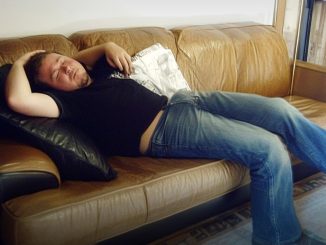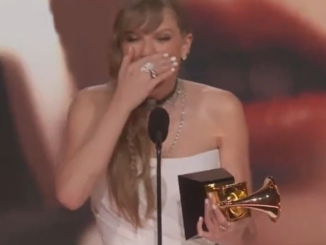
When Elise’s trash bins became the target of her bitter neighbor’s antics, she was ready for a fight. But instead of confrontation, she served up banana bread and kindness. What began as a quiet war turned into an unexpected friendship, proving that sometimes, the best revenge is compassion.
When my husband, James, passed away two years ago, I thought I’d weathered the worst storm of my life. Raising three boys, Jason (14), Luke (12), and little Noah (9), on my own wasn’t easy. But we’d eventually found our rhythm.
The house buzzed with the sound of schoolwork being explained, sibling banter, and an endless rotation of chores. We kept the garden alive, argued over who had dish duty, and made a life together that was equal parts chaotic and beautiful.
Things were finally steady. Manageable.
Until the neighbor decided to wage war on my trash bins.
At first, I thought it was the wind or a stray dog. Every trash day, I’d wake up to see the bins overturned, their contents scattered across the street like confetti.
“Bloody hell,” I muttered the next time I saw it. “Not again.”
I’d have no choice but to grab a pair of gloves, a broom, new trash bags, and start cleaning up before the Home Owners Association could swoop in with another fine.
Three fines in two months. The HOA weren’t playing fair. In fact, they’d made it very clear that they weren’t taking my excuses anymore.
But one Tuesday morning, coffee steaming in my hand, I caught him red-handed. From my living room window, I watched as my neighbor, Edwin, a 65-year-old man who lived alone, strolled across the street.
He didn’t even hesitate. With one swift motion, he tipped over my bins and shuffled back to his house like nothing had happened.
My blood boiled.
I was halfway to grabbing my shoes when Noah bounded down the stairs, asking for help with his math homework.
“Mom, please! It’s just two questions. Remember we were talking about it when you were doing dinner last night and we said we’d come back to it but we didn’t,” he rambled.
“Of course, come on,” I said. “I’ll get you some orange juice, and then we can work on that quickly.”
Homework first, trash war later.
The following week, I stood guard.
This time, I was ready.
And sure enough, there he was at 7:04 a.m., knocking the bins down with a strange sort of satisfaction before retreating inside.
That was it. Enough was enough.
I stormed across the street, adrenaline pumping. His porch was stark, no welcome mat, no potted plants, just peeling paint and drawn blinds. I raised my fist to knock, but something stopped me.
The quiet. The stillness of it all.
I hesitated, hand frozen mid-air. What was I even going to say?
“Stop knocking over my bins, you old lunatic?”
Would that even fix anything?
I went home, fuming but thoughtful. What kind of person gets up at the crack of dawn just to mess with their neighbor?
Someone angry. Someone lonely. Someone in pain, maybe?
“You’re just going to let him get away with it?” Jason asked that night, arms crossed and clearly ready to fight for me. “He’s walking all over us, Mom.”
“I’m not letting him get away with anything, love,” I replied, tapping the side of the mixing bowl as I stirred. “I’m showing him that there’s a better way.”
“And when baked goods don’t work, Mom?” Jason asked, eyeing the banana bread batter in the bowl.
“Then, my little love, I’ll set you on him. Do we have a deal?”
My son grinned and then nodded.
But it was during dinner prep, while I was putting together a lasagna, that I thought… instead of fighting fire with fire, what if I fought with something… unexpected?
The next week, I didn’t stand guard.
Instead, I baked.
Banana bread first, specifically James’ favorite recipe. The smell brought back memories I hadn’t let myself linger on in a long time. I wrapped the loaf in foil, tied it with a piece of twine, and left it on Edwin’s porch.
No note, no explanation. Just bread.
For a few days, the banana bread sat untouched on his porch. The bins stayed upright, but I still wasn’t sure what was going through his head.
The next morning, the foil-wrapped loaf was gone. A good sign, maybe.
Emboldened, I doubled down.
A casserole followed the banana bread. Then a bowl of chicken noodle soup.
Days turned into weeks, and not once did I see him open the door or acknowledge the food. But he didn’t tip the bins again, either.
“Mom, you’re going soft,” Jason said one evening, eyeing the plate of cookies I was about to deliver.
“No, I’m not,” I replied, slipping on my sneakers. “I’m being strategic.”
The cookies did the trick. That Saturday, as I placed them on the porch, the door creaked open.
“What do you want?” he asked.
I turned to find him peering out, his face lined with age and what looked like years of solitude. He didn’t look angry. Just… tired.
“I made too many cookies,” I said, holding up the plate like a peace offering.
He stared at me for a long moment, then sighed.
“Fine. Come in.”
The inside of his house was dim but surprisingly tidy. Bookshelves lined every wall, stacked high with novels, photo albums, and other trinkets. He motioned for me to sit on the worn sofa, and after a moment of awkward silence, he spoke.
“My wife passed four years ago,” he began, his voice halting. “Cancer. After that, my kids… well, they moved on with their lives. Haven’t seen much of them since.”
I nodded, letting him take his time.
“I’d see you with your boys,” he continued. “Laughing, helping each other. It… hurt. Made me angry, even though it wasn’t your fault. Tipping the bins was stupid, I know. I just didn’t know what to do with it all.”
“You don’t just walk over to your neighbors and tell them you’re miserable,” he said, shaking his head. “That’s not how I was raised. You bottle it up and deal with it.”
His voice cracked on the last word, and I felt my frustration melt away. This wasn’t about trash bins. It was about grief. About loneliness.
“I’m sorry,” he said, his head bowed.
“I forgive you,” I replied, meaning every word.
“I don’t even know your name,” he said.
“Elise,” I said. “And I know you’re Edwin. My husband mentioned you once or twice.”
Then, I invited him to join my Saturday book club at the library. He looked at me like I’d suggested he jump off a bridge.
“Book club? With strangers!”
“They’re not strangers,” I said. “Not really. They’re neighbors. Friends you haven’t met yet.”
It took some convincing, but the following Saturday, Edwin shuffled into the library, hands stuffed in his pockets. He didn’t say much that first meeting, but he listened.
By the third, he was recommending novels and trading jokes with the other members.
The real turning point came when one of the ladies, Victoria, a spry widow in her seventies, invited him to her weekly bridge game. He accepted.
From then on, he wasn’t just my cranky neighbor. He was Edwin, the guy who brought homemade scones to book club and always had a dry one-liner up his sleeve.
The bins stayed upright. The HOA fines stopped.
And Edwin? He wasn’t alone anymore.
One evening, as I watched him laughing with Victoria and the other bridge players on her porch, Jason came up beside me.
“Guess you weren’t soft after all,” he said, grinning.
“No,” I said, smiling as I ruffled his hair. “Sometimes, the best revenge is just a little kindness.”
And in that moment, I realized something: We weren’t just helping Edwin heal. He was helping us, too.
The first time Edwin came over for dinner, he looked like he didn’t know what to do with himself. He showed up holding a bottle of sparkling cider like it was a rare treasure. His shirt was freshly ironed, but he still tugged at the collar as if it might strangle him at any moment.
“You didn’t have to bring anything,” I said warmly.
He shrugged, his lips twitching into something that resembled a smile.
“Didn’t want to come empty-handed, Elise,” he said. “It’s polite.”
The boys were setting the table, Noah carefully placing forks, Luke arranging the glasses, and Jason lighting a candle in the center. They glanced at Edwin curiously, a little wary.
Dinner was simple but comforting: roast chicken, mashed potatoes, and honey-glazed carrots, with a loaf of crusty bread and gravy on the side. It wasn’t fancy, but it was one of James’ favorite meals. It was something that always brought warmth to the table, no matter how chaotic the day had been.
“Smells good in here,” Edwin said as he sat down, his eyes darting around like he was trying to take in every detail of the room.
“Mom’s chicken is famous in our family,” Noah piped up proudly, scooping a mountain of mashed potatoes onto his plate. “She makes it the best.”
“High praise,” Edwin said, glancing at me.
We all settled in, and for a while, the only sound was the clink of forks and knives against plates. But soon, the boys started peppering Edwin with questions.
“Do you like chicken or steak better?” Luke asked.
“Chicken,” Edwin replied after a moment of thought. “But only if it’s cooked as well as this.”
Noah giggled.
“What’s your favorite book? Mom says you like to read a lot.”
“That’s a tough one,” Edwin said, rubbing his chin. “Maybe To Kill a Mockingbird. Or Moby Dick.”
Jason, always the skeptic, raised an eyebrow.
“You actually finished Moby Dick?”
That made Edwin laugh, a deep, hearty sound that seemed to surprise even him.
“I won’t lie. It took me a year.”
By dessert, apple pie with a scoop of vanilla ice cream, Edwin had relaxed completely. The boys were swapping stories about school, and he was chuckling along, even teasing Jason about his upcoming math test.
As I cleared the plates, I glanced over to see Edwin helping Noah cut his pie into bite-sized pieces, patiently showing him the best way to balance the ice cream on the fork. It was such a tender moment, and my heart squeezed a little.
When dinner was over and the boys ran off to finish homework, Edwin lingered in the kitchen, drying dishes as I washed them.
“You have a good family,” he said softly.
“Thank you,” I replied, handing him a plate to dry. “And you’re welcome here anytime. You know that, right?”
He nodded, his throat bobbing as he swallowed.
“I do now.”
I Came Home from Vacation to Find a Huge Hole Dug in My Backyard – I Wanted to Call the Cops until I Saw What Was at the Bottom

When I cut short our vacation due to Karen falling ill, the last thing I expected was to find a massive hole in our backyard upon returning home. Initially alarmed, I hesitated when I spotted a shovel inside, leading me into an unexpected adventure involving buried treasure, newfound friendship, and lessons in life’s true values.
Karen and I rushed back from the beach early after she fell ill. Exhausted but wary, I decided to check the house’s perimeter before settling in. That’s when I stumbled upon the gaping pit in our lawn.
“What’s this?” I muttered, approaching cautiously.
At the bottom, amid scattered debris, lay a shovel. My first instinct was to call the police, but then I considered the possibility that the digger might return, knowing we were supposed to be away.
Turning to Karen, who looked unwell, I suggested keeping the car hidden in the garage to maintain the appearance of absence.
As night descended, I kept vigil by a window, watching and waiting. Just as I was about to give up, I spotted a shadow vaulting over our fence.
Heart pounding, I ventured out with my phone ready to call the authorities. Approaching the pit, I heard the clink of metal on earth.
“Hey!” I exclaimed, shining my phone’s light into the hole. “What do you think you’re doing?”
The figure looked up, squinting. My jaw dropped—it was George, the previous owner of our house.
“Frank?” he stammered, equally surprised. “What are you doing here?”
“I live here, remember?” I retorted. “What are you doing in my yard in the middle of the night?”
George climbed out, looking sheepish. “I can explain. Just… please don’t involve the police.”
Arms folded, I demanded an explanation.
“My grandfather owned this place,” George began, “and I recently discovered he hid something valuable here. I thought I’d dig it up while you were away.”
“You broke into my yard to hunt for treasure?” I couldn’t believe it.
“I know how it sounds,” George pleaded, “but it’s true. Help me dig, and we’ll split whatever we find.”
Despite my better judgment, I agreed. Over hours of digging, we shared stories, George revealing his hardships—a lost job and his wife’s illness. His hope for this treasure to change their lives touched me.
As dawn approached, our optimism dwindled with each shovel of dirt revealing nothing but rocks and roots.
“I was so sure…” George’s disappointment was palpable.
Offering a ride home, we filled the pit and drove to his house, where his wife, Margaret, greeted us anxiously.
“George! Where have you been?” Margaret exclaimed, eyeing me curiously.
Explaining the situation, George’s dream of buried treasure was deflated by Margaret’s reality check.
“My grandfather’s tales were just that—stories,” she gently reminded him.
Apologizing, George and Margaret offered to repair our yard. I declined, suggesting they join us for dinner instead.
Driving home, I shared the night’s escapade with Karen, who teased me about my unusual night with a stranger. Reflecting on our conversation, I proposed inviting George and Margaret for dinner—an unexpected outcome from a night of digging for imaginary treasure.
As I assessed the yard in daylight, I realized life’s treasures aren’t always what we seek but the connections we forge along the way.



Leave a Reply